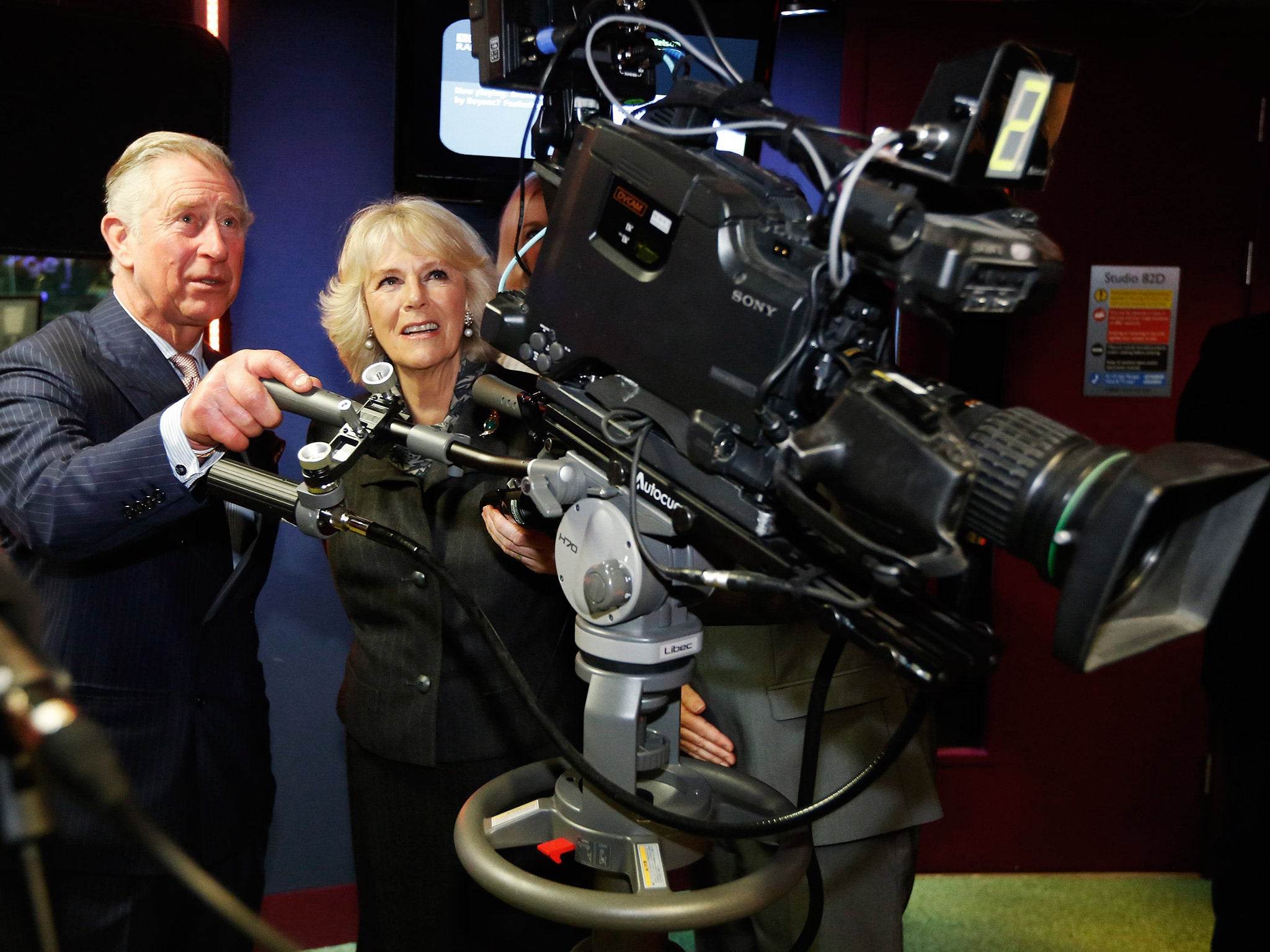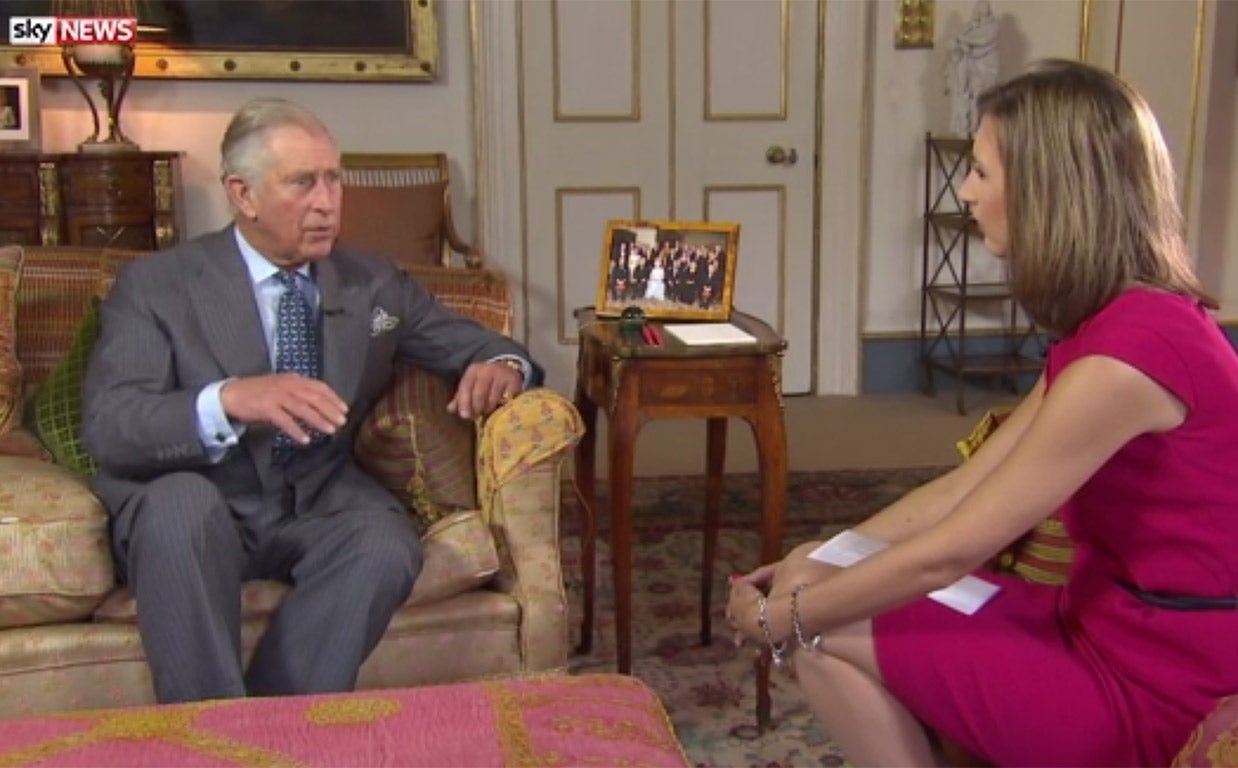Prince Charles's efforts to control the media slammed by republicans
Prince Charles has been demanding that broadcasters sign up to 15 pages of strict pre-conditions for interviews

Your support helps us to tell the story
From reproductive rights to climate change to Big Tech, The Independent is on the ground when the story is developing. Whether it's investigating the financials of Elon Musk's pro-Trump PAC or producing our latest documentary, 'The A Word', which shines a light on the American women fighting for reproductive rights, we know how important it is to parse out the facts from the messaging.
At such a critical moment in US history, we need reporters on the ground. Your donation allows us to keep sending journalists to speak to both sides of the story.
The Independent is trusted by Americans across the entire political spectrum. And unlike many other quality news outlets, we choose not to lock Americans out of our reporting and analysis with paywalls. We believe quality journalism should be available to everyone, paid for by those who can afford it.
Your support makes all the difference.Media experts and republicans have reacted with anger to revelations that the Prince of Wales is demanding that broadcasters sign up to 15 pages of strict pre-conditions for interviews, giving him the right to block the final product.
The Independent revealed that the contracts restrict interviews to precise pre-agreed questions and give Clarence House the right to take part in various stages of the editing process and to pull the interview “in its entirety” if it is not satisfied with the finished package.
The terms of the contract, likened by one source to the media control exerted in North Korea, led to Channel 4 News and presenter Jon Snow pulling out of an interview with Prince Charles due to take place on 29 November in Paris ahead of the COP21 Climate Change conference, at which the Prince was a keynote speaker.
Clarence House has argued that the contract is similar to those used by other members of the royal family in media engagements. “The issuing of broadcast contracts is standard practice across the royal households,” said a spokesperson.
The Independent understands that other broadcast news organisations have signed up to pre-broadcast contracts prior to interviews with the Prince.
The BBC, which has carried several interviews with the Prince this year, maintained that “we always maintain editorial control of the programmes we broadcast”. CNN, which had exclusive access to the Prince and the Duchess of Cornwall prior to an American tour this year, said it had “full editorial and creative control” over the interview. Sky News, which carried an exclusive interview with the Prince last month, declined to comment on the matter.
The extremity of demands in the Clarence House contract shocked broadcasting experts. Steven Barnett, Professor of Communications at the University of Westminster and author of The Rise and Fall of Television Journalism, said: "Taken as a whole, these terms are patently unreasonable . Any public figurehead paid for out of taxpayers money - let alone a future king - should be prepared to accept independent journalistic scrutiny. We should congratulate Channel Four News for standing up to a clear attempt by the Royals to set their own news agenda, unchallenged.”

Paul Lashmar, head of journalism at the University of Sussex and a former reporter for ITV’s World in Action, said: “That Prince Charles, as the heir to the throne, prevents the news media asking important questions about how he runs his businesses during interviews, is shocking. It is the most important task of a robust British news media to ask the difficult questions of those who use public monies, are powerful and seek to influence the public debate on many subjects.”
The general secretary of the National Union of Journalists, Michelle Stanistreet, said: “Broadcasters need to assert their editorial control and, as long as they reporting in a fair manner, should resist this level of censorship. We cannot have a situation where supine news organisations become favoured “broadcasters by royal appointment” because they agree to Clarence House terms. Channel 4 news was right to refuse these terms and others should follow suit.”
The republican campaign group Republic said it would be writing to the broadcast regulator Ofcom, and to BBC News, Sky News and ITN “to clarify their position on interviews with members of the Royal Household”.
Graham Smith, the group’s CEO, said the Prince was trying to use broadcasters “as extensions of his PR operation”. He said: “These contracts raise serious questions about the editorial independence of our national broadcasters. Any broadcaster signing these contracts should hang their heads in shame. Prince Charles should be subjected to the same level of scrutiny and challenge as anyone else.”
Channel 4 said in a statement: “We do not sign pre-interview agreements, and interviewees appear on Channel 4 News on that basis. We would still be delighted to interview Prince Charles.”
Join our commenting forum
Join thought-provoking conversations, follow other Independent readers and see their replies
Comments